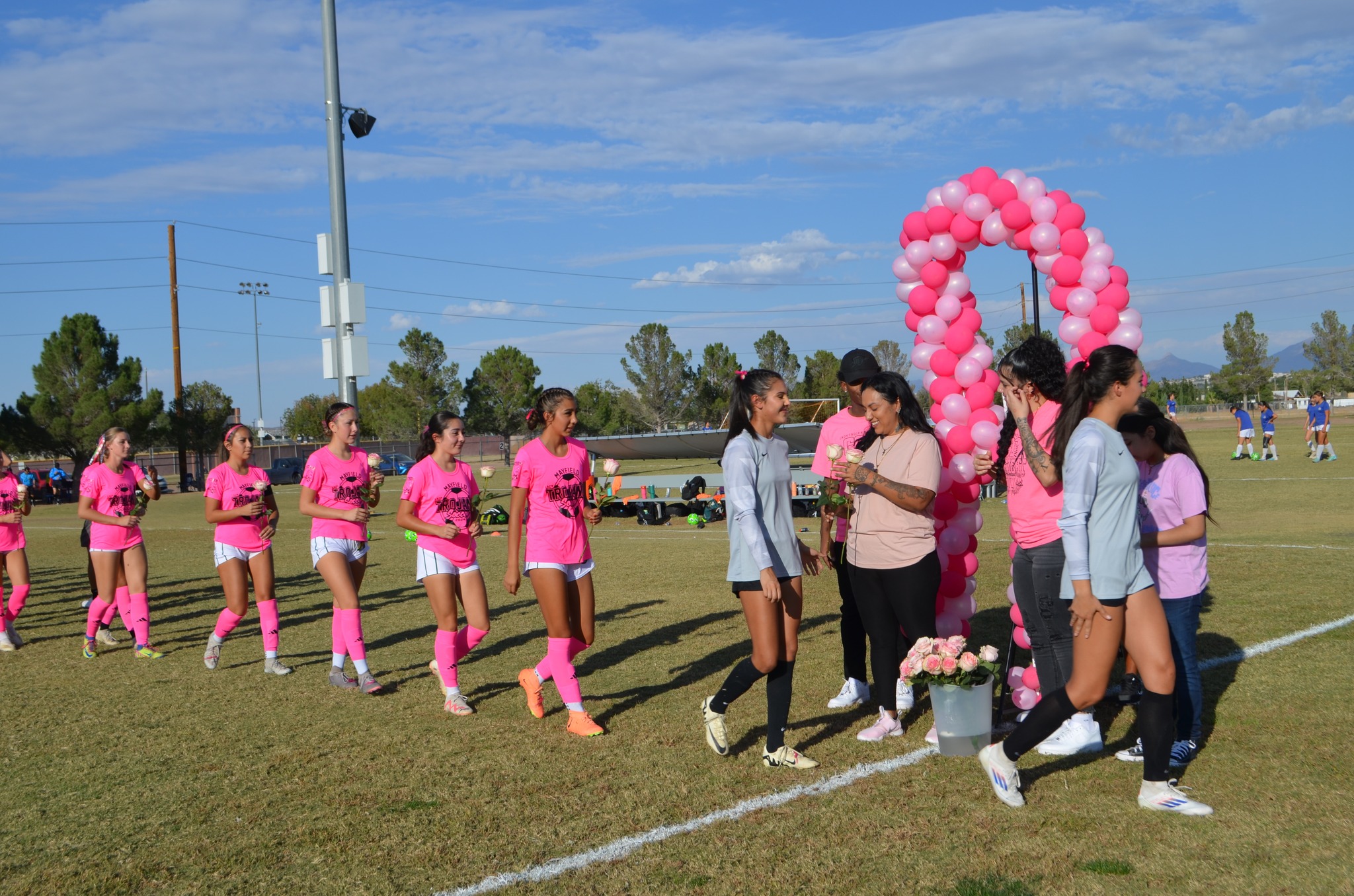-and-
Prioritize early detection and screening.
Source: New Mexico Department of Health
Early detection of breast cancer dramatically increases the chances of survival for most patients. During National Breast Cancer Awareness Month, the New Mexico Department of Health (NMHealth) encourages women to talk with their doctor about their risk for breast cancer to make an informed decision about when to start screening.
The United States Preventive Services Taskforce recommends beginning screening at age 40 for those who are at average risk. People at higher risk may start screening at a younger age.
Source: New Mexico Activities Association…
Here is an inspiring story that unfolded during Pink Week, involving the girls’ soccer programs at Mayfield High School and Centennial High School. These two competitors exemplified what makes high school athletics so much more than just a game—they demonstrated the power of community and compassion.
Centennial, as the home team, graciously granted Mayfield the opportunity to wear their pink uniforms to honor a Mayfield player’s mother who is currently battling breast cancer. In a touching moment before the match, players from both teams came together to present the player’s mother with roses, recognizing her courage and strength throughout her fight.

In addition to the emotional show of support, the Mayfield soccer team also rallied to raise over $4,000, which they presented to the family to assist them during this challenging time.


This event was a profound example of how athletics can unite us beyond the scoreboard. These young athletes, while competitors on the field, came together in a shared spirit of compassion and community. It was a powerful reminder that what we teach on the field—about teamwork, respect, and care for others—extends far beyond the game itself.
Breast cancer is the most common type of cancer diagnosed in women, except for skin cancers. About one in eight American women will face a breast cancer diagnosis during their lifetime. In 2024, an estimated 1,780 women in New Mexico will be diagnosed with breast cancer, and around 300 women are expected to die from the disease.

Although rare, men can also get breast cancer. In 2024, an estimated 2,790 American men will also face a breast cancer diagnosis.
Some breast cancer cases do not have symptoms, but there are symptoms that may occur including:
- New lump in the breast or underarm (armpit).
- Thickening or swelling of part of the breast.
- Irritation or dimpling of breast skin.
- Redness or flaky skin in the nipple area or the breast.
- Pulling in of the nipple or pain in the nipple area.
- Nipple discharge other than breast milk, including blood.
- Any change in the size or the shape of the breast.
- Pain in any area of the breast.
The CDC also notes some of the main factors that can increase your risk for developing breast cancer, which include:
- Having a family history of breast or ovarian cancer.
- Having a personal history of breast cancer or certain noncancerous breast diseases.
- Being female and over the age of 50.
- Having a BRCA1 or BRCA2 genetic mutation.
- Receiving radiation therapy to the breast/chest as an adolescent or young adult.
“Knowledge is power. Discuss your family history and any concerns with your doctor to determine the right time for you to begin screening. Your proactive approach can make all the difference,” said Dr. Miranda Durham, Chief Medical Officer for NMHealth. “Access to screening should never be a barrier. If you lack insurance, our Breast and Cervical Cancer Early Detection Program is here to help. Reach out to our Helpline for support and resources.”
-and-
For individuals with limited or no health insurance who are concerned about the cost of mammograms, NMHealth offers assistance through the Breast and Cervical Cancer Early Detection Program. Call the NMHealth Helpline at 1-833-SWNURSE (1-833-796-8773) to find a participating medical provider in your area. The Helpline provides services in English, Spanish, and other languages.
Breast cancer is estimated to cause 42,250 deaths in the U.S. this year. Please don’t wait to take action for you or a loved one. Schedule that mammogram!





